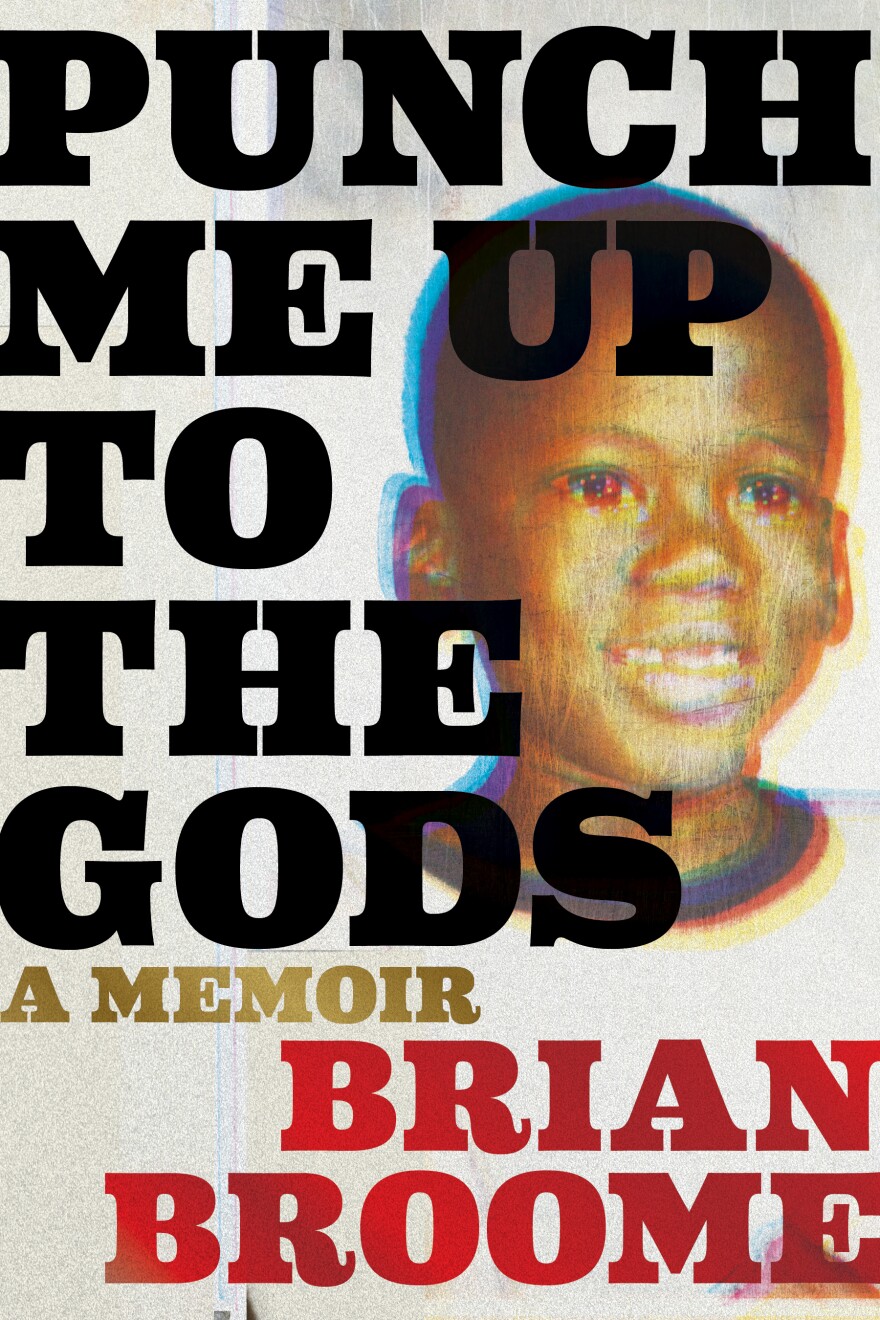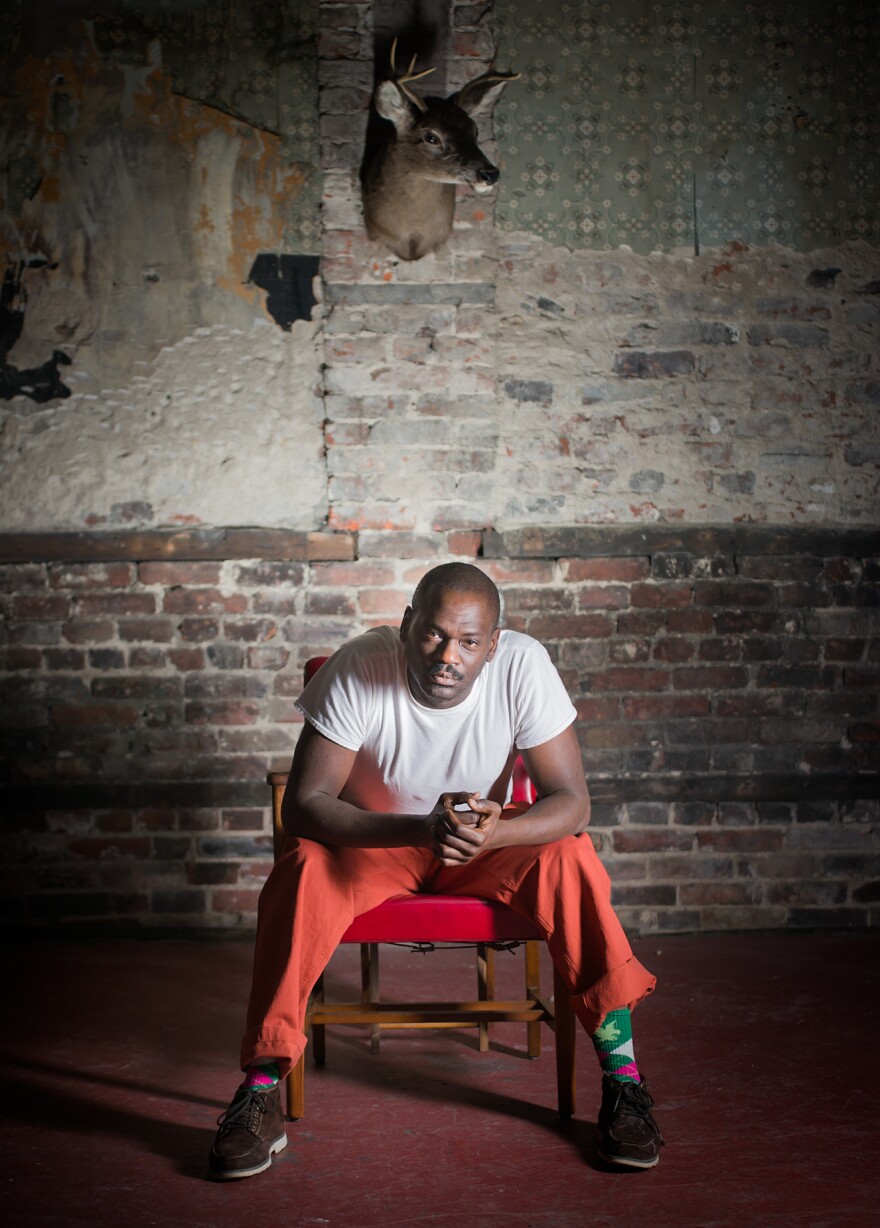Brian Broome began writing a memoir of his life when he was at the absolute bottom — in rehab for drug addiction in his 40s.
"That's where it kind of officially started, and then when I got out of rehab, it just went from there," he tells Morning Edition.
His book, Punch Me Up to the Gods, begins with his father beating a 10-year-old Broome with his fists. The blows by his father, and even his friends, were meant to pound manliness into him.
Broome later came out as gay.
That opening chapter is set when his father lost his job as a steelworker in Warren, Ohio, as the industry declined.
"He stayed at home because my father didn't have much education and he didn't know what to do other than be a steelworker or some other kind of backbreaking labor," Broome says. "He thought that that's what men were supposed to do to take care of their families. And he had trouble rethinking his role in the household."
This interview has been edited for length and clarity.
Interview Highlights
It seems that your father spends a great deal of his appearances in this book trying to pound into you what he thinks men are supposed to do and be
Not just men, I think specifically Black men. I knew from very young that I was supposed to be tougher than other men. Black men were supposed to be more masculine. The reason I stopped writing when I was a kid was because my cousin told me it was it was girly. You shouldn't do that. That's not what men do — feeling deeply anything or curiosity or finding something pretty. All these things were taken away because you just have to continually play this role of being the toughest guy in the room.
...
It feels like something distinctively Black to me because of the history of racism in America. I think that there's a legacy of what might be termed emasculation with Black men throughout history, the ability for them to take care of their families or just being humiliated. Black men have an extra responsibility to prove that we are manly in many ways. And that's usually by dominating something or being emotionless and stoic.

You were interested in writing as a boy and gave it up because people disapproved of that. You ended up in a Master of Fine Arts program in your late 40s. I'm wondering if you feel that the way you were treated in your youth forced you to waste decades of your life?
I have great regret for the amount of time that I've wasted. When I finally went to college, there was that shame of gosh, you're in your late 40s. I was surrounded by 18-year-olds. Like, any of these people could be your child. I was ashamed of that. But after a while, I just thought, what else are you going to do? What else can you do? Are you going to go back to something that makes you miserable? Are you just going to do some job for a paycheck and just be miserable and then relapse? What else are you going to do? So I went to community college after rehab and then I met some really great people who said, you're actually not a bad writer. Maybe you should pursue that. And I just got my MFA. I just graduated from the University of Pittsburgh.
On thanking his father in the book for the lessons he taught him
I think people are going to read this book and think that my father is the bad guy, but I don't think he was the bad guy. I believe that my father suffered from depression. I believe that he suffered from anxiety. I believe that he suffered from a low self image and he couldn't see his way out of it. So he didn't know he was teaching me those things. I certainly didn't know he was teaching me those things at the time. But when I look back, I see that from his behavior, what I don't want to do, that I want to take care of my mental health, that I think Black Americans should look into their mental health because it's hard living in the United States as a Black person. It's demoralizing some days.
This is kind of a love letter to Black boys, to tell them that don't you have to be this thing that the world keeps telling you that you are. You can be anything you want to be. And then, as I was writing, it got broader and broader, and I thought this could really be a prescription for anybody who feels like they have to perform a specific way because of the body that they're living in.
Copyright 2021 NPR. To see more, visit https://www.npr.org.



